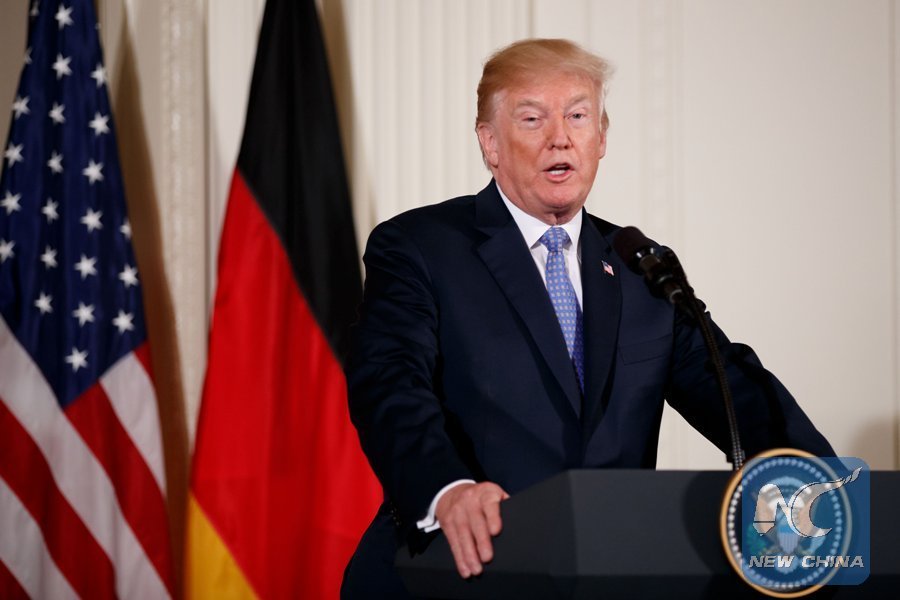
U.S. President Donald Trump speaks during a joint press conference with German Chancellor Angela Merkel (not in the picture) at the White House in Washington D.C., the United States, on April 27, 2018. (Xinhua/Ting Shen)
WASHINGTON, May 3 (Xinhua) -- More than 1,100 economists on Thursday warned President Donald Trump and U.S. Congress not to repeat the mistakes made in the 1930s by adopting trade protectionism policies.
The economists, including 14 Nobel prize winners and other economic advisors to former U.S. presidents, sent a letter to Trump and the Congress to urge them to step back from tariff threats, arguing that similar action taken by the Congress in the 1930s sank the U.S. economy into the Great Depression.
"Congress did not take economists' advice in 1930, and Americans across the country paid the price," said the letter, referring to the history that 1,028 economists urged Congress, also in a letter, to reject the protectionist Smoot-Hawley Tariff Act in 1930.
"Today, Americans face a host of new protectionist activity, including threats to withdraw from trade agreements, misguided calls for new tariffs in response to trade imbalances, and the imposition of tariffs on washing machines, solar components, and even steel and aluminum used by U.S. manufacturers," said the letter.
"The undersigned economists and teachers of economics strongly urge you not to repeat that mistake," it said.
It quoted portion of the 1930 letter as saying that "they (protective duties) would operate, in general, to increase the prices which domestic consumers would have to pay. A higher level of protection would raise the cost of living and injure the great majority of our citizens."
The Trump administration has pulled the United States out of the Trans-Pacific Partnership, and is renegotiating the North American Free Trade Agreement (NAFTA) with Canada and Mexico.
It has imposed additional tariffs on steel and aluminum imports by citing so-called "national security risks" and threatened to impose additional tariffs on about 150 billion U.S. dollars of imports from China.
The business community in the United States has long been urging the administration to resolve trade disputes through multilateral frameworks instead of imposing high tariffs.
Thomas Donohue, president and CEO of U.S. Chamber of Commerce, one of the largest business lobby groups in Washington, said recently that tariffs are hidden, regressive taxes that will be paid by U.S. businesses and consumers in the form of higher product prices.
He urged the U.S. government to resolve trade disputes without inflicting collateral damage on businesses and consumers.

